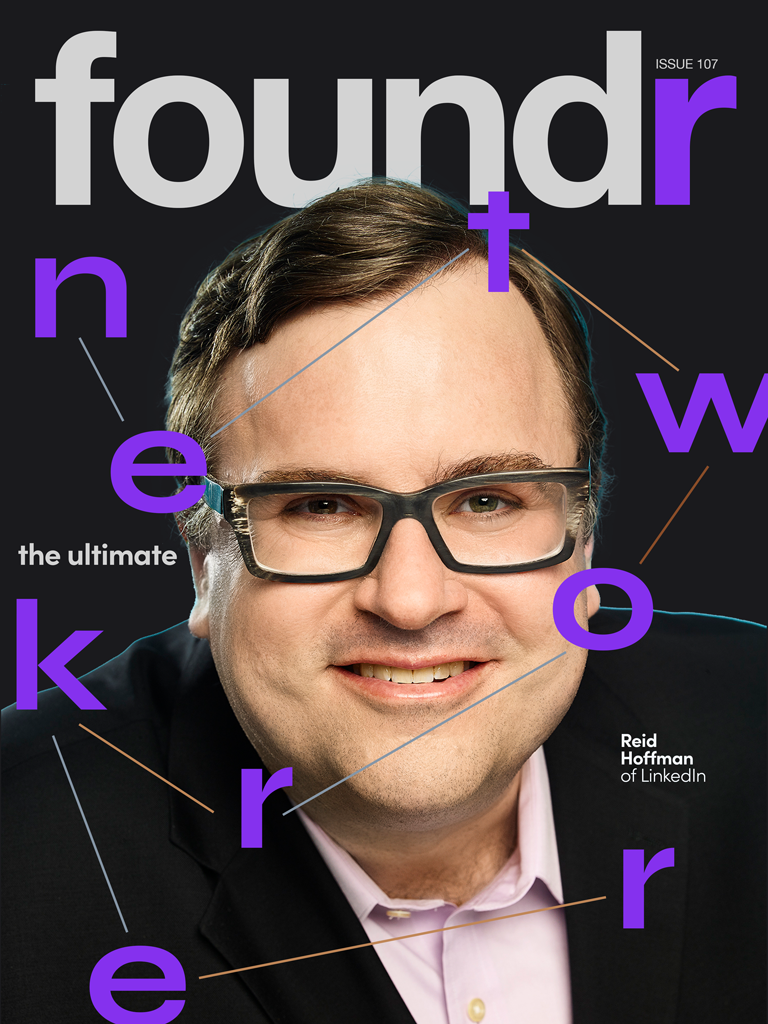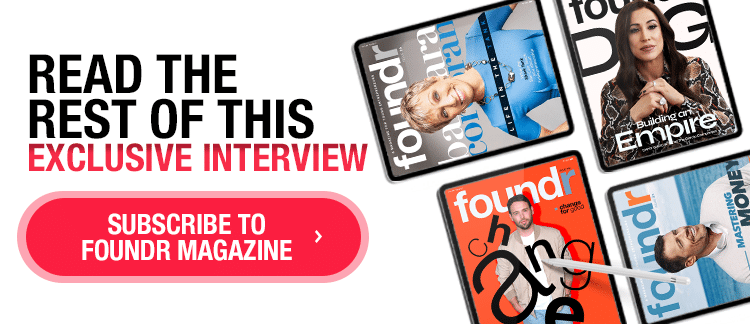Foundr Journal publishes in-depth interviews with the world’s best entrepreneurs. Our articles spotlight key takeaways from every month’s cowl characteristic. We talked with Reid Hoffman about confounding LinkedIn and a founding board member of PayPal, two firms which have helped mould the world as we all know it at present and mixed to promote for greater than $27 billion. Learn excerpts from that in-depth dialog beneath. To learn extra, subscribe to the journal.
—————
Had Twitch been round when Reid Hoffman was 12, you could have been in a position to watch a future billionaire hone his enterprise abilities in real-time.
An avid gamer, Hoffman was obsessive about fantasy role-playing video games, similar to RuneQuest.
He beloved the concept of making a world, and, in some methods, collaborating within the earliest model of a metaverse the place you needed to learn to collaborate with others, go on missions, and remedy issues.
Then there was his ardour for Avalon Hill board video games that taught him the basics of technique. Fundamentals he nonetheless makes use of when speaking to entrepreneurs at present.
“Ceaselessly after I’m speaking to entrepreneurs, the metaphor that I take advantage of to attempt to unpack a technique is, what’s your concept of the sport? Proper? So what sport are you enjoying? What’s your concept of the sport? How do you win?” Hoffman says. “There’s clearly OKRs and other forms of issues. However that type of factor I feel got here from my 12-year-old self, who was so obsessive about video games.”
Unbeknown to Hoffman on the time, his obsession with gaming would give him a basis of abilities that will assist him create behemoths of firms similar to LinkedIn and PayPal and spend money on numerous others, together with Airbnb and Coupons.com. The acclaimed writer and investor can also be the creator of the favored podcast Masters of Scale.
So how does a person put together to construct two firms that bought for greater than $27 billion mixed?
Simple.
By finding out philosophy, in fact.
To Be or To not Be
Hoffman by no means meant to get into tech.
Initially, he thought he could be an educational, and after he had accomplished his research at Stanford, the place he graduated with a bachelor’s in Symbolic Methods, he crossed the pond and enrolled at Oxford.
As a Marshall Scholar, he obtained his grasp’s diploma in Philosophy in 1993. Nonetheless, throughout his research at Oxford, he realized he could be spending most of his time writing papers for the tutorial neighborhood if he continued with a profession in academia versus pursuing an ambition near his coronary heart, which was discovering methods to assist humanity evolve.
Witnessing what his classmates at Stanford had been doing with know-how and the way they had been bettering the world, he needed to be part of that.

With extra of a transparent deal with what he needed to do along with his life and how much firms he needed to be concerned with, Hoffman was on the job hunt when he returned to California. And naturally, he ended up on the excellent tech firm that shared the identical passions.
“After I got here again from Oxford and I used to be trying round for a job, after I had that prospect at Apple, I jumped at it due to these previous senses,” Hoffman says.
“Plus, a part of what we do with know-how is we attempt to make a greater world for individuals.”
Though this was through the darkish ages of Apple earlier than Steve Jobs had returned, the corporate nonetheless had a dedication to its previous senses and dedication to consumer interface design. Hoffman beloved that, and whereas engaged on consumer expertise for practically two years, he gained buckets of information from the easiest.
After Apple, he spent a while with Fujitsu as their director of product administration and improvement earlier than shifting on to his first entrepreneurial enterprise, SocialNet.
Based in 1997, the social community hoped to assist customers discover relationship alternatives and join with buddies.
With this being his first startup, Hoffman was studying on the fly. From being an inexperienced supervisor to not having a transparent plan on buyer acquisition, the younger firm had too many hurdles to beat, and after two and a half years, SocialNet ran its course.
However Hoffman wouldn’t stay idle very lengthy.
The PayPal Mafia
Whereas at SocialNet, Hoffman was additionally on the founding board of a cutting-edge know-how firm: PayPal.
PayPal, an digital cash transmission service, was co-founded by his longtime pal Peter Thiel, a relationship that began after they had been sophomores at Stanford.
With SocialNet now dissolved, Hoffman joined the so-called “PayPal Mafia,” the place he labored alongside future tech icons similar to Elon Musk. Nonetheless, on the time, Hoffman had no clue how influential his colleagues had been. He had no concept they’d be the longer term leaders of tech.
“No,” Hoffman says. “What I did know was it was a bunch of individuals with a really intense studying curve, who’re working at creating the longer term actually quick and type of throwing the whole candle within the fireplace.”
One would assume that with an organization filled with future leaders, PayPal ran with no hitch and confronted only a few challenges. It was really the exact opposite. In truth, it was maybe probably the most intense interval of Hoffman’s life.
“I feel lots of it’s we’re a bunch of younger people who didn’t perceive administration very effectively,” Hoffman says. “And [we] tended to make quite a lot of unforced errors that you just’d must right from quick. PayPal had numerous near-death experiences.”
When pondering again to a type of near-death experiences, Hoffman remembers a dialog with Thiel in August of 2000 about how briskly they had been spending cash. “I mentioned, ‘Look, we’re spending cash so quick that if we had been … throwing wads of $100 payments over the roof of the constructing, we’d spend cash much less quick doing that than the best way we at the moment are,’” he says.
With no actual enterprise mannequin in place on the time and no income coming in, the corporate was working on fumes.
Nonetheless, it’s intense experiences like this that individuals not often see. Positive, everybody sees the good product and the acquisition, however they don’t see the stress behind the scenes that their workforce was shouldering.
“I do assume it’s one of many issues that individuals ought to perceive about entrepreneurship,” Hoffman says. “It does contain these strains; it does contain that type of tear within the stuff that you just’re doing. However in fact, that’s one of many the explanation why it’s exhausting. And once you succeed, it will also be heroic since you’ve gotten via that.”
Hoffman and the workforce would ultimately create one thing heroic, as eBay would purchase PayPal for $1.5 billion in 2002.
Together with his newfound wealth, Hoffman had each intention of taking a 12 months off and recalibrating. However there was one factor on his thoughts that he couldn’t shake, and he couldn’t wait a 12 months to revisit it.

